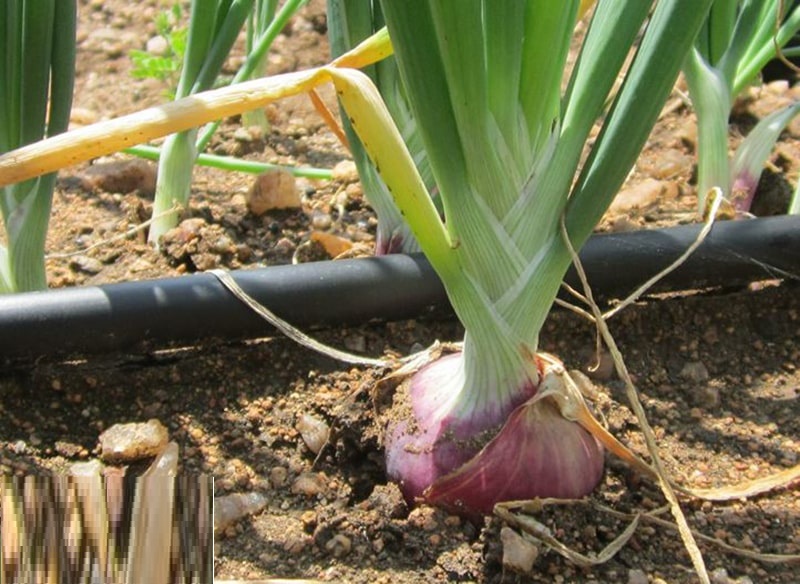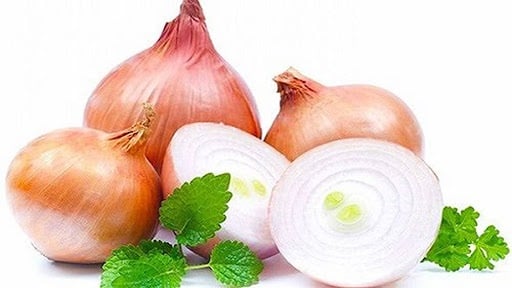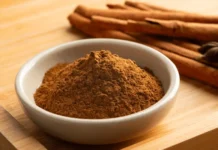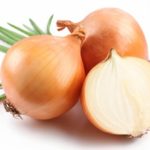8 Amazing Health Benefits of Onions

Prevents Colds
Onions help prevent colds and reduce symptoms such as stuffy nose, runny nose due to colds. Research has shown that onions contain allicin, a powerful antibacterial and anti-inflammatory compound that inhibits and destroys many types of viruses.
Therefore, the compounds in this bulb act similar to antibiotics and can resist flu viruses and prevent colds.
Strengthens Bones
Onions are rich in calcium, comparable to calcium-rich vegetables such as cabbage. They also contain magnesium and potassium, calcium and phosphorus in onions have a balanced ratio, making it easy to absorb calcium into the body. Those who want to supplement calcium, prevent osteoporosis, can choose this bulb as their favorite food.
Supports Digestive Health
Raw onions are high in fiber, which is essential for maintaining a healthy digestive system. Fiber helps promote regular bowel movements and can help reduce the risk of constipation, appendicitis and other digestive disorders.
Good for Heart Health
Onions have good benefits for heart health due to their antioxidants, anti-inflammatory compounds, reduced triglycerides and reduced cholesterol levels. Consuming onions can help reduce the risk of heart disease. In addition, onions can also help reduce high blood pressure and protect against blood clots.
Reduces Blood Pressure
Onions are fat-free foods, the benefits of onions can reduce the external resistance, counteract the effects of increased blood pressure, maintain the stability of the salt excretion process in the body. Therefore, onions have effective and safer effects in reducing blood pressure compared to antihypertensive drugs.

Controls Diabetes
Raw onions contain a compound called allyl propyl disulfide, which has been shown to help reduce blood sugar levels in people with type 2 diabetes. Allyl propyl disulfide works by increasing insulin sensitivity, helping the body use insulin more effectively to regulate blood sugar levels.
Contains Cancer-Fighting Compounds
Onions contain fisetin and quercetin, flavonoid antioxidants that can inhibit tumor growth. Therefore, consuming vegetables in the onion family such as garlic and onions is associated with reducing the risk of certain cancers, including stomach and colon cancer.
Boosts Immune System
Due to the presence of phytochemicals, onions have the ability to stimulate the enhancement of vitamin C in the body. This strengthens your immune system and helps fight disease-causing toxins. In addition, onions also contain many other nutrients such as zinc, vitamin C, quercetin, flavonoids. These are very good for the body, helping the body develop strong and excellent antioxidants, helping the body fight against disease-causing viruses.
4 Groups of People Not Recommended to Eat Onions
People with Red Eyes
According to Oriental Medicine, red eyes are due to excessive heat in the body. Therefore, patients should avoid spicy and hot spices like onions. This type of spice will create a hot sensation for the eyes or make them even redder.
People with Kidney Disease
Since onions contain a lot of phosphorus, if kidney patients eat too much onions, the amount of phosphorus in the body will increase the metabolic burden for the body, easily causing kidney damage, making the kidney disease of the patient more serious, not beneficial for the recovery process.
People with a Hot Body
People with a hot constitution or a fever should be cautious when eating onions. This is because onions have a strong spicy taste and a warm nature. People with a hot constitution, if they eat such foods, can cause heat and anger, make the body’s gas dry and hot.
People with Low Blood Pressure
People with low blood pressure should not eat onions at all because they have a cold nature and have the effect of lowering blood pressure, so they should not eat.
Times when you should not eat onions
If you have irritable bowel syndrome, you should not use onions. And if you have gastroesophageal reflux disease, you should especially avoid using onions in the evening. Because after eating onions and lying down, it can make the symptoms worse than those of acid reflux.
Using onions will make your breath smell unpleasant, so consider before using. Because the impact of creating an odor for the breath can last and even cause discomfort after a few hours of use.

































